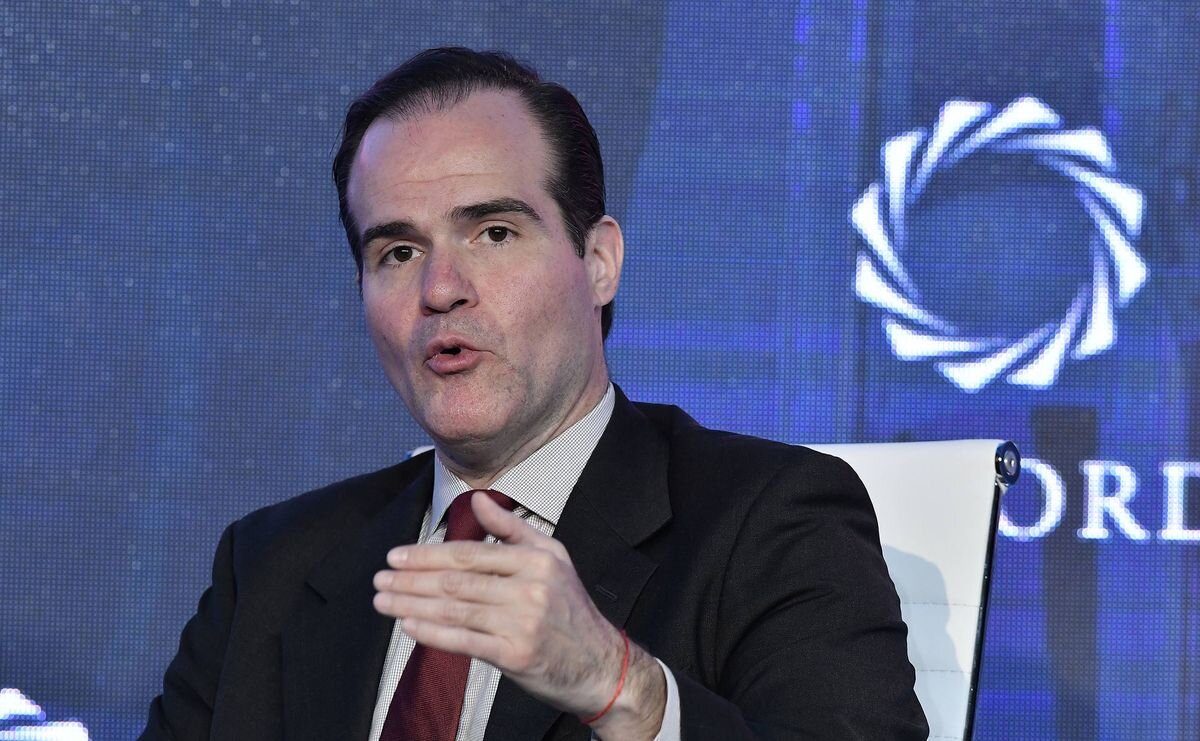BUENOS AIRES/WASHINGTON, (Reuters) – A battle is brewing for control of Latin America’s main development bank.
On one side, U.S. President Donald Trump is looking to combat the rising influence of China; on the other, there is a quiet rebellion of countries chafing at losing control of their regional lender.
Trump’s pick is his hawkish adviser Mauricio Claver-Carone, known for his bare-knuckle approach and tough stance on Venezuela and Cuba. Claver-Carone is the favourite to win the Inter-American Development Bank’s leadership election in September, with the backing of countries including Brazil and Colombia.
However, his candidacy has riled others in the region. He would be the first person from outside Latin America to lead the Washington-based IDB, a smaller cousin of the IMF that has been led by Latin Americans since its founding in 1959.
Argentina, which has its own candidate, favors delaying the vote until after the Nov.3 U.S. election in the hopes of weakening Claver-Carone’s position should Trump lose, two Argentine government sources said. Mexico is likely to back Argentina, though faces a tricky political balancing act.
The vote reflects a wider geopolitical struggle in Latin America, long seen as the backyard of the United States, but which has been pulled closer into the orbit of China, the main consumer of its commodities and an increasingly active lender.
China was “definitely an important factor” in Washington’s decision to put forward a candidate, said one senior U.S. official, who described Claver-Carone as a “straight-shooter who gets things done.” U.S.-China tensions have flared under Trump, who has bridled at Beijing’s push for global influence.
In an interview with Reuters last week, Claver-Carone acknowledged there had been some regional push-back, but brushed it off and said that he had “overwhelming” support, citing public backing from 15 countries and six more privately.
“I think there’s possibly going to be even more, all want to see us succeed because it’s good for their countries,” he said. “Any effort by one country to try to delay the election goes against the will of the overwhelming majority of the region.”
A candidate needs support of at least 15 of the 28 regional member countries and a majority of the total vote to win. The percentage of voting control relates to each country’s shares in the bank and there must be at least 75% for quorum or the election must be rescheduled.
In the near future, the IDB will need to help cash-strapped countries in the region bounce back from the impact of COVID-19. Claver-Carone said he wants to boost the bank’s capital and help countries that he said had been saddled with non-transparent Chinese lending.
He also said the United States is looking at offering incentives to companies to bring as much as $50 billion in U.S. investment back to the Americas from Asia.
‘DIFFICULT, BUT NOT IMPOSSIBLE’
Blocking the election of Claver-Carone may prove tough with the muscle of the United States, which holds 30% of the bank’s voting power.
The United States also caused a deadlock at the World Trade Organization this month after it pushed to have a U.S. citizen act as interim director general, in what other members saw as an unwarranted power grab.
One of the Argentine government sources said the U.S. bid for the role was less about the region’s development and more about countering China, as well as an attempt to win over voters in Florida who agree with Claver-Carone’s hardline approach on socialist-run Cuba and Venezuela.
The source said delaying the election by forcing a postponement would be “difficult, but not impossible.”
A second Argentine official said a delay beyond the Sept. 12 vote was “an option that would suit us” and said the country was confident its candidate would gain Mexico’s support. Both officials declined to be named.
Argentina, the IDB’s largest borrower last year, has just over 11% of the voting share, while Mexico has above 7%, meaning they would need more support to hold up a vote.
A Mexican government official said the country was unlikely to support Claver-Carone, due to his hawkish views. Another official was more non-committal, underscoring the diplomatic sensitivities for Mexico if they openly oppose Trump. Both declined to be named.
Chile and Peru, which are run by centrist governments and control less than 5% of IDB votes combined, have yet to state their position publicly.
The IDB declined to comment on the election.
Latin American former presidents and ministers from across the political spectrum have voiced opposition to the nomination of Claver-Carone, including from Argentina, Brazil, Chile and Colombia. In the United States, Democratic Senator Patrick Leahy said Claver-Carone was “the wrong nominee,” calling him the “architect” of Trump’s “most ideologically-driven policies” toward the region.
Susana Malcorra, a foreign minister in Argentina’s previous conservative administration who signed a letter in opposition to the U.S. candidate, told Reuters the region needed “to find a way to put a halt to this process” to give Latin American countries a chance to settle on a consensus candidate.
Benjamin Gedan, director of the Wilson Center’s Argentina Project in Washington, said that a rejection of Claver-Carone “would be a black eye for the Trump administration, showing waning influence.” If Trump loses the presidency, and Claver-Carone won the vote, Latin Americans may end up with a lame duck head of the regional bank, he added.
“You may be saddled with a candidate you were bullied into choosing by a president who may be out of office for the entire term.”

